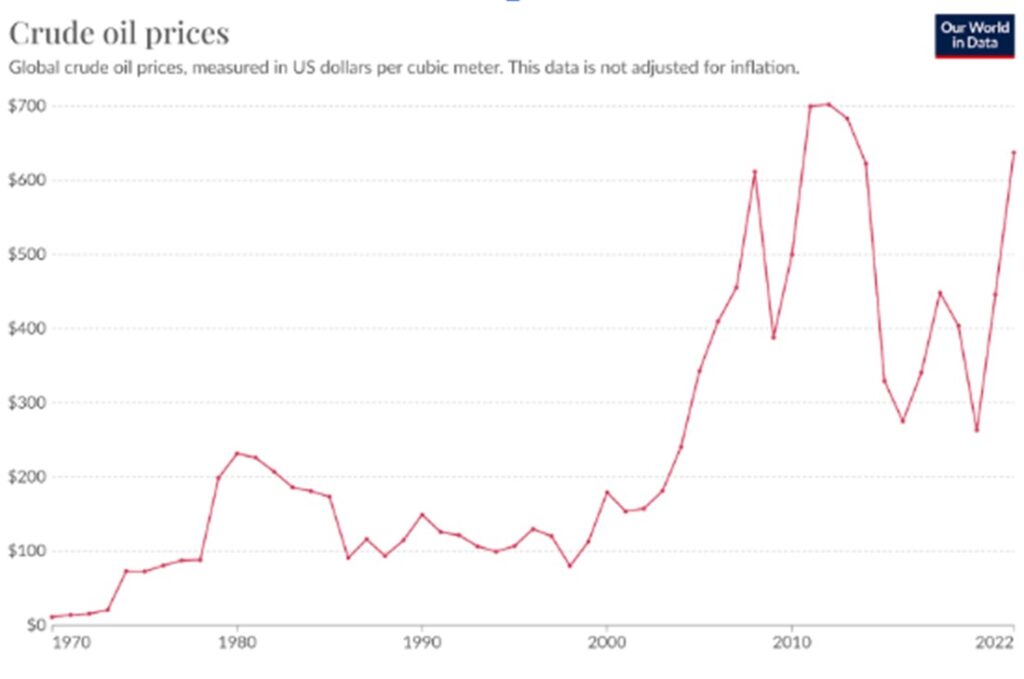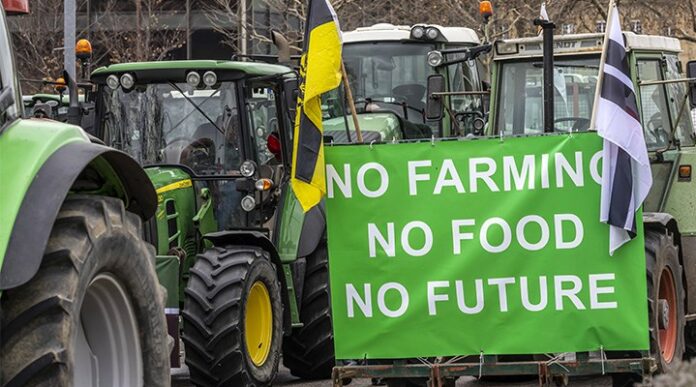Ecehan Balta
Short Historical Background
Peasant uprisings are one of the most characteristic features of medieval Europe. The Jacquerie in France in 1358, the Peasants’ Revolt in England in 1381, the Hussite and Taborite uprisings in Bohemia in the 1420s, and the Peasants’ War in Germany in 1525, are some examples. Marxist historian Charles Tilly argues that these uprisings were more progressive, egalitarian, and freedom-seeking compared to modern revolts. Similarly, Engels, in his work on the 1525 German Peasants’ “Revolution,” asserts that the peasant wars of the 16th century were class struggles in which peasants defended their material interests. According to him, the fact that these class struggles had religious overtones at that time does not change their essence and can be easily explained by the conditions of the era.
However, after the Middle Ages, peasant uprisings took a more “reactionary” character against the Enlightenment progressive historical process. The Vendée uprising that ended in 1793, the Spanish uprisings continuing into the twentieth century, rural uprisings against Louis Napoleon’s coup in 1851 in France – all can be interpreted as resistances against the advancement (industrialization) and the growth of cities at the expense of the countryside. Moreover, apart from the Russian peasant due to their specific context, these resistances were mostly anti-bourgeois, anti-capitalist, anti-state, mobilizing communities as collectives and relying on aristocrats, clergy, and professionals for leadership. These resistances did not remain confined to Europe; they spread to Asia and Latin America immediately after subsiding in Europe. The construction of the nation-state and the enclosure of bourgeois territories clashed constantly with the interests of peasants, leading to continuous conflicts.
However, it is essential to acknowledge that we cannot lump all peasant uprisings into the same category. One of the crucial lessons from recent research in rural history is that the grievances leading to revolts are both concrete and variable. Studies since the 1950s have revealed a general pattern of response to various violations of established rights. However, within this framework, we can assert that new and intensified taxation has been the most crucial factor triggering rural uprisings in Europe and beyond. For instance, during the early years of the Republic of Turkey (1923-1945), heavy taxes essential for nation-state building facilitated by the primary accumulation of capital led to numerous peasant uprisings throughout the country.
As Tilly said, there is an important lesson to be learned from tax revolts. On the surface, they may seem like direct, uncomplicated reactions to poverty. One might think that new taxes are merely the last straw. However, a closer look reveals that revolts focus on taxes that violate existing local rights and threaten the rural community’s ability to sustain valuable activities.
Today, the reasons for the new peasant movements emerging all around Europe should be sought in the structural transformation occurring in agriculture, making it more challenging to sustain rural activities.
From the “Potato Sack” to the Outburst of Anger
Marx and Engels discuss the “idiocy of rural life” in the Communist Manifesto. This term is often interpreted as the foolishness of peasants, portraying them as a mass with common characteristics confined to the potato sacks they are using, unable to act together due to their differences. However, in the Communist Manifesto (and other texts not discussed here), what is emphasized is the isolation of the countryside by the cities and how industrialization shapes peasants as isolated communities, a point still valid today.
However, as Engels did in the German Peasants’ War, to understand existing peasant resistances, we need to look at their historical-social background, the accumulated experiences on which the resistance is based, and the order in which they emerged as a result of economic-political decisions.
We can now focus on the significant damage caused by neoliberalism in agriculture:
Current global agricultural programs are eliminating small and medium-sized enterprises, promoting industrial agriculture and contract farming models imposed by multinational agri-food companies. This creates a market for agricultural inputs such as seeds, pesticides, and fertilizers produced/marketed by multinational corporations and strengthens the monopoly of large corporations in agriculture. These practices accelerate biodiversity loss and lead to the loss of food sovereignty for small and medium-sized peasant farms. We face a situation where peasants cannot plant the seeds they want (and even the type of crop they want), and they are often confronted with imposed production quotas. Simultaneously, the growth of industrial farming and monopolization in input processes in agriculture increases input costs, making them unbearable for small farmers.
The Rural Development Policy implemented by the European Union is based on a Common Agricultural Policy. This policy has three main pillars: 1. Encouraging competitiveness in agriculture, 2. Ensuring sustainable management of natural resources and combating climate change, 3. Balanced development of rural economies and communities, including job creation and retention.
A competitiveness-focused perspective on rural development essentially accelerates the proletarianization of small and medium-sized farmers. Agriculture is inherently dependent on climate conditions; it is an unpredictable field. There is no guarantee that you will get the same yield from the land one year as you did the previous year. Solutions proposed to reduce this risk, such as chemical fertilizers, insecticides, and herbicides, lead to a decrease in food quality and exacerbate the climate crisis. One-third of greenhouse gas emissions worldwide come from agricultural production. Once caught in this vortex, entering into ecological crises, extreme climate events, and water scarcity, among other reasons, results in a decrease in the quantity of products. In other words, the competitiveness-oriented rural development perspective, developed to mitigate the risk, makes the disaster inevitable.
The rise in gasoline prices is one of the most important factors increasing agricultural input costs. In the table below, created from Our World in Data[1], the evolution of oil prices since the 1973 Oil Crisis is exhibited. I would like to point out that the very rapid increase in 2022 follows a similar trend to the 2008 economic crisis.

Another current and pressing issue for rural communities is the measures taken across the EU to reduce the effects of climate change. With the “Farm to Fork Strategy” published in 2019, the aim is to reduce the use of chemical fertilizers and pesticides in agriculture by at least 50% and fertilizers by 20% by 2030 to alleviate the effects of climate change. The problem is that in a competitive environment, reducing the use of these elements that increase productivity and simultaneously reducing subsidies and support that can be used to offset income loss means a death sentence for small and medium-sized farmers. Especially in an environment where the costs of survival are increasing, the equation of decreasing income and increasing expenses becomes the fundamental point leading farmers to rebellion.
Are those on tractors the new army of the far right?
In France, Belgium, Spain, Italy, Romania, Germany, Poland, and Greece, among others, we have been witnessing radical actions by farmers in the last few months, including road closures. Ody, a representative of the French Peasants’ Union (Confédération Paysanne), summarizes the above framework with his statement:
“Farmers on the European continent were already suffering from the poor conditions brought about by falling incomes, high costs, and competition from cheap imports. But now, more stringent green policies announced by the EU, such as the recently introduced carbon tax, threaten to make things even worse.”
The farmers revolts have been taking place at a period in which the far right is on the rise in Europe. It is clear that in some cases, sections of the farmers movement identifies with far right parties in different countries. In the case of Germany, one reason for this is the overlap between the protectionist policies advocated by the peasant movement to prevent cheap products from entering the country and the “Germany First” approach of AfD in Germany. Another reason is that that implementation of policies against the poor have come both from the center-left and the center-right camps. In that sense, farmers do not have anything to expect from traditional bourgeois parties.
However, this phenomenon also has to do with the fact that sections of the Left see the peasantry as the reserve army of the extreme right. As a matter of fact, the headline of the German left-wing newspaper La Taz describing farmers as a “gang of harvesters”[2] is a good example of this.
In Germany, farmers are pushed to think that one of the reasons for their impoverishment is help for migrants and external aid, as indicated by the following statement of a farmer: “There is money for people all over the world but not for our own people.”
Climate denial theories are also present inside the movement, as, beyond the greenwashing, the cost of combating climate change is imposed on the poor again, and this approach is presented as “progressive”. There is a real retrogression on that matter in this sense.
So what is to be done?
Unfortunately, we do not have a ready-made prescription. However, first and foremost, emphasizing that the increase in agricultural input costs generally makes access to food more difficult is crucial. From this perspective, the proletariat and, more generally, the oppressed must stand with peasant movements.
However, it should be noted that we cannot say that all the farmers rising across Europe are small and medium-sized farmers. For example, as seen in Germany, large farm owners are also participating in protests to reduce rising costs. The class composition of protesters and the class character of the demands need to be examined separately for each country.
On the other hand, we know that the farmers themselves are not a politically harmonious mass. The unions and associations organizing these protests are not all right-wing. The Left has the responsibility to explain that small farmers in particular are victims of big farmers’ land control, precisely because industrial farms are causing the climate crisis.
We cannot support all the demands put forward by the farmers. However, considering the critical importance of clean and good food for the whole society, we must express our agreement that subsidies must continue and small and medium-sized farmers must be protected against large farms and unfair competition.
We cannot label peasants as the “reserve army of the far right” and set them aside or demonize them in a way that pushes this movement towards the right.
On the other hand, whether socialism or capitalism, whichever mode of production prevails, policies to reduce the effects of the ecological crisis must cover the agricultural sector. However, today, the policies that the EU implements under the name of sustainable development approach are on the one hand half-measures and on the other are impoverishing people. Exposing this hypocritical approach is also our duty.
One issue related to this is the call for “agricultural technological transformation” accompanying the “green transformation” in agriculture. There is no data on how green digital applications in agriculture reduce the effects of the ecological crisis or increase productivity while reducing risks. But we know that companies investing in agricultural technologies are getting richer, and these expensive technologies support industrial agriculture. Peasantry based on small and medium-sized family farms is in a struggle for survival. We can only support this struggle by highlighting the culture of solidarity and cooperatives rather than competitive policies centered on industrial agriculture that are one of the main culprits of the ecological crisis.
As Engels said, when peasants “defend not their present, but their future interests” and “desert their own standpoint to place themselves at that of the proletariat”, a society based on ecological and democratic central planning will be drawn closer than it is now.
What is needed is a United Front between workers and farmers, to fight against impoverishment and climate change that negatively affects both.
[1] https://ourworldindata.org/
[2] https://www.sozialismus.info/2024/01/baeuerliche-blockaden-soziale-revolte-oder-reaktionaere-mobilisierung/












